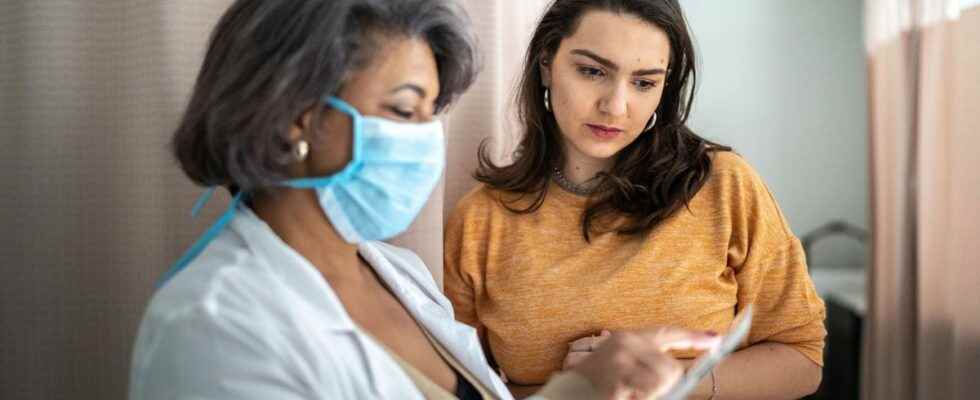Published on
Updated
Reading 3 mins.
“I always have to start by explaining what my job consists of, but people are finally quickly convinced of the usefulness of my work”, explains Selma Boussarou, 47, employee at the Mutualité française de Clermont Ferrand. Her profession: health mediator.
Every day, she goes to the priority neighborhoods of the city’s policy to meet patients who are no longer medically followed. They are mainly elderly or precarious people. Many do not have access to digital technology and struggle to find appointments with practitioners or administrations.
Although the term is still little known, it is gradually gaining ground in the health and medico-social sectors. The Minister of Health, François Braun, promotes it himself. He said on October 3 “to be convinced” that health mediation “is a key to our collective action“, at the opening of the section of the National Council for Refoundation (CNR).
The health mediator intervenes with patients “whose care and prevention pathway is failing“, explains Pr Olivier Bouchaud, infectiologist at the Avicenne hospital in Bobigny (Seine-Saint-Denis). patients.
It is then up to the health mediator to bring patients and carers closer together: on the one hand, he must support the patient in his reintegration into the health system and on the other hand, he must make the carers aware of the specific problems that have taken the patient away from the course. care.
Particularities
“Health professionals can be confused by the particularities of certain patients“, some of whom suffer for example from mental disorders, hence the need for a third party “who has a global vision, who restores confidence and makes the link”, defends Philippe Denormandie, surgeon and general delegate of the NEHS Dominique Bénéteau Foundation which finances numerous associative health mediation projects.
Asked by distraught doctors faced with hospitalized patients with HIV who refuse treatment, Marie-Jeanne Otshudi, health mediator for the Ikambere association, holds hotlines in several Parisian hospitals. “I put them in confidence, I reassure them and I help them little by little to accept their HIV status and to adhere to medical monitoring”, she says.
The skills required for this profession are vast: in addition to certain medical knowledge, “you have to know how social protection works, to guide the patient through the administrative maze“, specifies Olivier Bouchaud, and have skills relating to the ethics of care. “The health mediator mobilizes technical skills but also know-how and interpersonal skills”, he summarizes.
Five years ago, the infectiologist created the first university course dedicated to health mediation within the University of Paris 13. Each year, around twenty professionals from the health, social or medico-social sectors graduate after 160 training hours.
The profession developed from the 1980s in the voluntary sector before being officially recognized by the law on the modernization of the health system of 2016. Its framework was clarified in 2017 by the High Authority for Health, which defined a practice reference. No census of health mediators has been carried out to date.
However, health mediation remains largely unknown to professionals, who observe it from afar sometimes with suspicion. “There is still no definition of a framework, a strategy, an economic model. It’s a sum of experiences but it has never been put to music in a collective way. We must be able to integrate health mediation into our public health rules“, pleads Philippe Denormandie, who is one of the three “guarantors” appointed by the Minister of Health within the framework of the CNR.
On November 16, on the occasion of the Congress of the French Society for the Fight against AIDS, Olivier Bouchaud will launch a national appeal to the government in favor of the creation of 1,000 health mediator posts per year.
